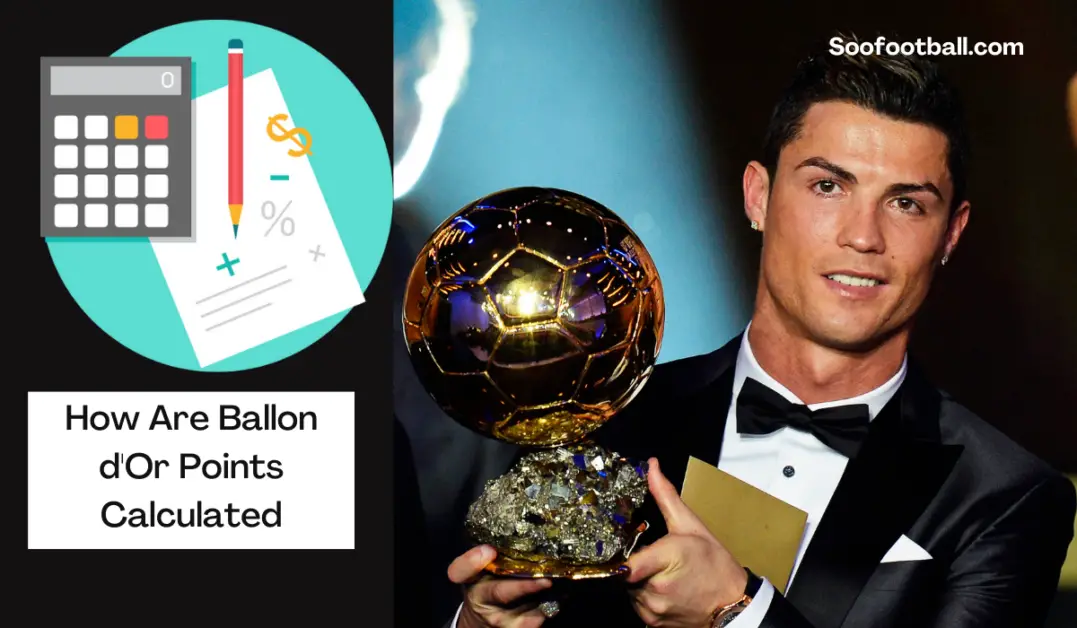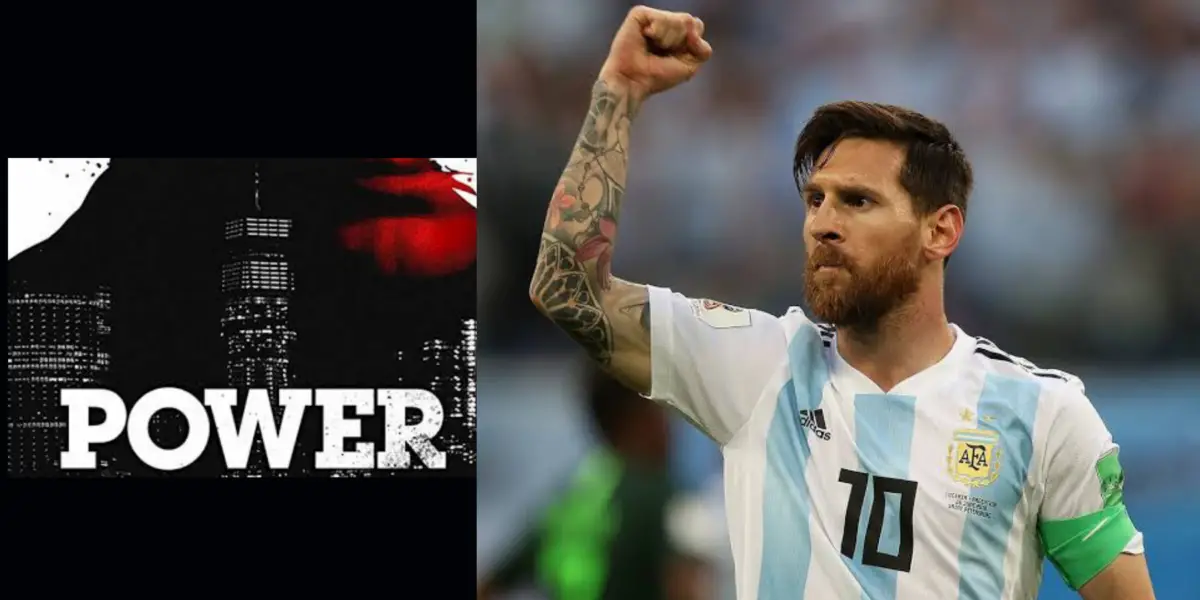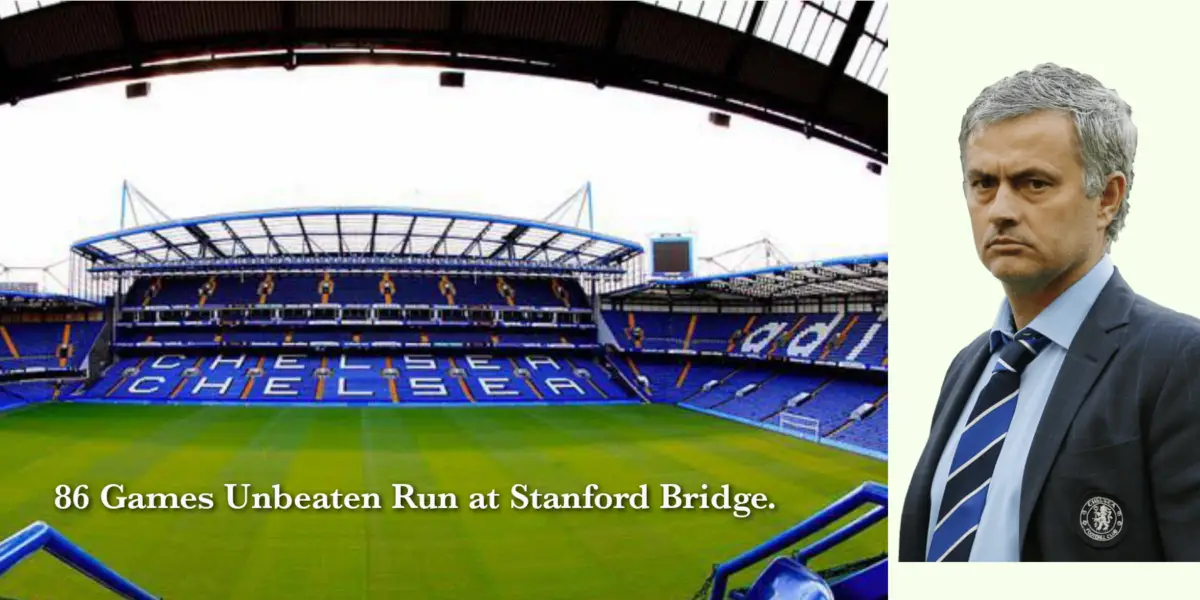Generally in football, where legends are made and iconic moments etched into the annals of history, there exists a coveted prize that captures the hearts and minds of players and fans alike – the Ballon d’Or. It’s the ultimate recognition of a player’s brilliance, a moment when their dedication, skill, and passion are celebrated on a global stage. But have you ever wondered how those magical numbers, those precious points that decide the Ballon d’Or winner, are calculated?
Behind the glitz and glamour of the awards ceremony lies a complex and meticulously crafted system that determines who walks away with football’s most prestigious individual honour.
In this article, we’re going to dive deep into the inner workings of the Ballon d’Or voting process. We’ll demystify the calculations, explore the criteria, and reveal the secrets behind how winners emerge as footballing royalty.
Whether you’re a die-hard football fanatic or a casual observer, understanding the intricacies of how Ballon d’Or points are calculated will give you a whole new appreciation for the sport and its legends.
Read Also: How Messi Beat Lewandowski To The 2021 Ballon d’Or
Criteria For Ballon d’Or Points
For nominees to be selected and voted for, certain general criteria have to be met. These criteria are what help to ascertain how Ballon d’Or points are calculated.
1. Performance on the Pitch
Performance on the pitch is arguably the most critical factor in determining Ballon d’Or points. It encompasses a player’s ability to consistently excel in various aspects of the game, such as scoring goals, creating opportunities, defending effectively, and displaying exceptional skills. Here are some practical examples:
Goal Scoring
A player’s goal-scoring prowess heavily influences their Ballon d’Or chances. For instance, Lionel Messi’s record-breaking 91 goals in a calendar year (2012) significantly boosted his chances of winning the award that year.
Assists and Playmaking
Providing assists and creating goal-scoring opportunities is equally important. Kevin De Bruyne’s ability to consistently set up goals for his teammates at Manchester City demonstrates the value of playmaking in Ballon d’Or consideration.
Defensive Excellence
Exceptional defenders are not excluded from the Ballon d’Or conversation. Players like Fabio Cannavaro (2006) and Franz Beckenbauer (1972, 1976) showcased defensive brilliance to claim the award.
Read Also: How Haaland vs Messi Compares For The 2023 Ballon d’Or Race
2. Consistency Throughout the Year
Consistency throughout the calendar year is crucial. Players must maintain a high level of performance over an extended period, including domestic league matches, international competitions, and key fixtures. A prime example is Cristiano Ronaldo‘s consistency in scoring goals across different competitions year after year.
Statistical Consistency
Maintaining consistent statistics, such as a high goal-scoring rate or a high number of assists throughout the year, can significantly impact a player’s Ballon d’Or chances. Players like Robert Lewandowski have benefited from their consistent goal-scoring records.
Read Also: Players Who Could Have Won Ballon d’Or If Not For Messi and Ronaldo
Performance in Crucial Matches
A player’s performance in high-stakes matches, such as cup finals or decisive international fixtures, can be a make-or-break factor. Diego Maradona’s exceptional showing in the 1986 World Cup, including the infamous “Hand of God” and “Goal of the Century” moments, highlighted his consistency on the biggest stage.
3. Influence on Team Success
While individual brilliance is essential, a player’s influence on their team’s success is equally significant. Winning trophies and leading one’s team to victory can enhance a player’s Ballon d’Or chances. Practical examples include:
Trophies Won
Players who lead their teams to significant titles, such as the UEFA Champions League, FIFA World Cup, or domestic league championships, often receive extra consideration. For instance, Cristiano Ronaldo and Luka Modric’s contributions to Real Madrid’s Champions League victories boosted their Ballon d’Or prospects.
Leadership and Impact
Captains or influential leaders on the field who inspire their teams through their presence and performances, like Franz Beckenbauer’s role in West Germany’s World Cup win in 1974, are often rewarded.
How Ballon d’Or Voting Process Works
The Ballon d’Or is more than just a celebration of footballing excellence; it’s also a democratic process that involves a diverse group of voters from the footballing world. This process adds transparency and credibility to how Ballon d’Or points are calculated, making it one of the most prestigious individual honours in the sport. Let’s dive into the intricacies of the voting process.
Who Votes for the Ballon d’Or?
The Ballon d’Or voting panel comprises three key categories of voters:
- National Team Captains and Coaches: Captains and head coaches of national teams from around the world form a significant portion of the voting body. Each captain and coach submits a list of their top five choices, with the first choice receiving five points, the second four points, and so on.
- Practical Example: Suppose the Argentine national team captain, at the time, Lionel Messi, casts his vote for the Ballon d’Or. If he selects Cristiano Ronaldo as his first choice, Ronaldo would receive five points from Messi’s vote.
- Journalists: A select group of international journalists, specializing in football coverage, also participate in the voting process. These journalists bring a wealth of knowledge and expertise to the table, ensuring a balanced perspective on the award.
- Practical Role: Journalists submit their votes independently, and their opinions are crucial in providing an impartial evaluation of players’ performances throughout the year.
- National Team Fans: In recent years, the Ballon d’Or has introduced an online fan voting system. Fans worldwide can cast their votes through official channels, contributing to the overall results. While fan votes don’t carry the same weight as those from captains, coaches, and journalists, they offer an additional layer of engagement and interaction.
- Impact of Fan Votes: Although fan votes alone can’t decide the winner, they can influence the overall perception of the award and generate excitement among supporters.
How Players and Coaches Participate
National team captains and coaches play a unique role in the Ballon d’Or voting process. They submit their choices based on their firsthand experiences with players during international competitions and qualifiers. This approach ensures that the award considers the global impact of players, not just their performances at club level.
- Example: If the French national team coach, at the time, Didier Deschamps, votes in the Ballon d’Or, his selections are influenced by the performance of players like Kylian Mbappé and Antoine Griezmann during international matches and tournaments, as well as their contributions at their respective clubs.
Journalists’ Role in the Process
Journalists are tasked with evaluating players’ performances across various competitions, including domestic leagues, international tournaments, and cup competitions. Their role is crucial in providing an objective assessment of a player’s consistency, impact, and overall footballing quality.
- Practical Application: A journalist covering La Liga in Spain may consider the performances of players like Lionel Messi, Karim Benzema, and Sergio Ramos in league matches, as well as their contributions in the UEFA Champions League and international fixtures when casting their votes.
How Are Ballon d’Or Points Calculated?
The Points Allocation System in the Ballon d’Or is the mechanism that determines how players receive points based on the votes cast by national team captains, coaches, journalists, and fans. It is a critical aspect of the award, as it quantifies the opinions of the voters and ultimately decides the winner. Let’s delve into the intricacies of this system.
Understanding the Weighted Scoring
The Points Allocation System uses a weighted scoring method to assign points to the nominees. In this system, the first-choice pick receives the highest number of points, followed by progressively fewer points for each subsequent choice. Typically, the points are assigned as follows:
- 1st Choice: 5 points
- 2nd Choice: 4 points
- 3rd Choice: 3 points
- 4th Choice: 2 points
- 5th Choice: 1 point
This means that a player chosen as the first choice by a voter receives the maximum points, while those chosen lower down the list receive fewer points.
Categories and Rankings
The Ballon d’Or voting process considers players in various categories, including male and female players, young talents, and the Kopa Trophy (awarded to the best under-21 male player). Each category has its set of nominees and its own Points Allocation System.
- Male and Female Players: These categories feature the main Ballon d’Or awards for male and female players, respectively. The system applies the weighted scoring to determine the winner in each category.
- Young Talent (Kopa Trophy): This category recognizes the best young player under the age of 21. Similar to the main awards, the Kopa Trophy uses a weighted scoring system to select the winner from the list of nominees.
How Points Are Assigned to Nominees
The points assigned to nominees are cumulative, meaning that a player’s total points are the sum of all the points they receive from each voter. To illustrate this, let’s consider an example:
Suppose Cristiano Ronaldo is nominated for the Ballon d’Or, and three voters (Captain A, Coach B, and Journalist C) cast their votes as follows:
- Captain A: Ronaldo as 1st choice (5 points)
- Coach B: Ronaldo as 2nd choice (4 points)
- Journalist C: Ronaldo as 3rd choice (3 points)
Ronaldo’s total points would be 5 (from Captain A) + 4 (from Coach B) + 3 (from Journalist C), resulting in a total of 12 points. These points are tallied for all the nominees, and the player with the highest total points in each category is declared the winner.
This Points Allocation System ensures that the Ballon d’Or considers both the quantity and quality of votes, as a player who consistently receives high-ranking votes from various voters will accumulate more points, making their case for the prestigious award.
Recent Changes and Controversies Around Ballon d’Or Voting Process
The Ballon d’Or has been a hallmark of football excellence for decades, but it hasn’t been without its share of changes and controversies. In this section, we’ll explore recent modifications to the scoring system and delve into some of the most contentious award outcomes in recent years.
Changes in the Scoring System
The Ballon d’Or’s scoring system has seen adjustments to keep pace with the evolving dynamics of the footballing world. One notable change in recent years was the temporary suspension of the award in 2020 due to the COVID-19 pandemic. This pause in the award’s history raised questions about fairness and eligibility.
COVID-19 Impact
In 2020, the Ballon d’Or was cancelled for the first time since its inception in 1956 due to the disruptions caused by the pandemic. This led to debates over whether the suspension was justifiable and if players who had outstanding performances that year were unfairly denied the opportunity to win.
Fan Voting
Another change in the scoring system worth noting is the inclusion of fan voting. While fan engagement is a positive aspect of the award, it also introduced a new layer of subjectivity and potential biases.
The introduction of online fan voting allows supporters to have a say in the award. While this democratizes the process to some extent, it can sometimes result in a popularity contest, with players from more popular clubs having an advantage.
Controversial Winners and Runner-Ups
Controversial Ballon d’Or outcomes have been a recurring theme in recent years, sparking passionate debates within the footballing community. Here are a couple of examples:
- Luka Modric’s Win (2018): Luka Modric’s Ballon d’Or victory in 2018 was met with mixed reactions. While he had an outstanding year, leading Croatia to the World Cup final and winning the UEFA Champions League with Real Madrid, some argued that more traditionally recognized goal-scoring players like Cristiano Ronaldo or Lionel Messi were overlooked.
- Controversy: The win raised questions about whether the award had shifted its focus too far away from goal-scoring statistics and whether midfielders like Modric were being overemphasized.
- Lionel Messi’s 7th Ballon d’Or (2021): Lionel Messi’s record-breaking seventh Ballon d’Or win in 2021, following his transfer to Paris Saint-Germain (PSG) from Barcelona, sparked debate. Critics argued that his move to a new club mid-year should have affected his eligibility or standing in the race.
- Controversy: Some football enthusiasts believed that players who had been consistent throughout the entire calendar year and achieved success with their teams were unfairly overshadowed by Messi’s name recognition.
Statistical Insight of Ballon d’Or Winners
Statistical insights play a vital role in understanding the Ballon d’Or winners and their characteristics. Beyond subjective opinions and voting, statistics provide objective data to analyze past winners and discern trends that shed light on the criteria that influence Ballon d’Or outcomes.
Statistics reveal that Ballon d’Or winners typically possess a combination of prolific goalscoring, and playmaking abilities, and a significant impact on their team’s success. They excel both in individual and team-oriented aspects of the game.
Furthermore, there is a trend towards versatility, where players contribute to multiple facets of their team’s performance.
While statistical analysis provides valuable insights, it’s essential to remember that the Ballon d’Or is not solely determined by numbers. Subjective factors, voter opinions, and the unique circumstances of each year also play significant roles in the final outcome.
However, understanding statistical trends helps us appreciate the multifaceted criteria that contribute to a player’s chances of winning football’s most prestigious individual award.
Conclusion
So, how are Ballon d’Or points calculated? It’s not as simple as counting votes. The process is like a big puzzle, with different people like national team captains, coaches, journalists, and fans all having a say. They use a special system where the first choice gets the most points, and it goes down for the others. This makes sure that everyone’s opinion matters.
But remember, it’s not just about numbers. It’s also about how well a player does on the field, how consistent they are throughout the year, and how much they help their team win. There’s even room for some debates and controversies in the mix.
So, the Ballon d’Or points calculation is a mix of numbers, opinions, and stories that celebrate the amazing talents in the world of football. It’s a way to honour the players who make the sport so special.





